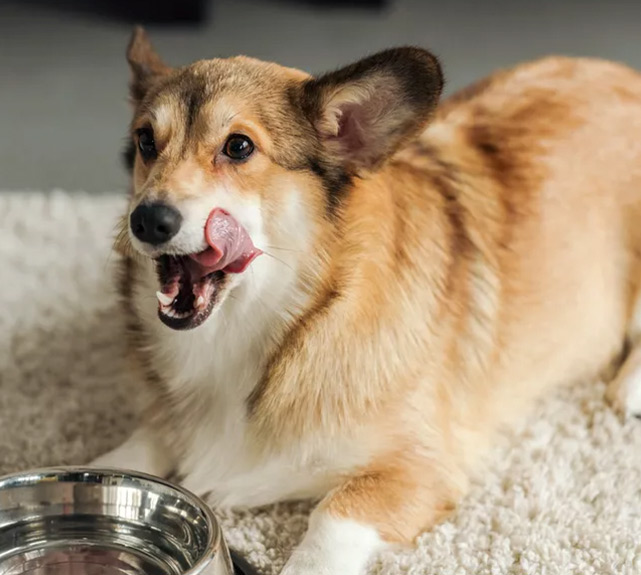

Caring for older dogs comes with challenges, but your bond with your pet means every moment you spend with him matters to you both. That's why you want to give him and yourself as many of those moments as possible. So how can you keep your older dog feeling young? It starts with offering him a high-quality food that is specifically made for his ageing healthcare needs, but it's also important to keep him physically and mentally active. If you do those things, you'll go a long way in guaranteeing you and your furry best friend will make the most of his golden years.
When Is a Dog Considered "Elderly?"
It depends on his size and breed. Generally, larger breeds reach mature adulthood and senior status earlier than small breeds. An analysis of 2.5 million dog veterinary records by Banfield Pet Hospital showed mixed-breed dogs weighing ninety pounds or more typically live eight years. That same analysis showed dogs under twenty pounds lived an average of eleven years. PetMD reports that the typical lifespan of large-breed dogs also varies by weight. Bulldogs, mastiffs, and Great Danes have the shortest lifespans (six and seven years) while Cairn terriers, Jack Russell terriers, Shih Tzus and other small breed dogs have the longest expected lifespans (thirteen and fourteen years).
Knowing this will help you understand your dog's changing needs and keep you informed of signs to be on the look out for that he might be slowing down a little and his care needs to change. But it doesn't mean that he can't still be fun and lively. Read on to learn about the signs of ageing, and what you can do to keep him as full and vibrant as he was in his young adult days.
What Are Signs of Ageing to Watch For?
Older dogs exhibit many of the same signs of ageing as humans. Watch for:
Want more information on signs of ageing in your dog? Check out these 'Tell Tails' signs of ageing, a helpful system for spotting signs of ageing in older dogs. Here you can get information on the science behind ageing, as well as compare your dog's age with human years to get a better sense of where your furry friend is in his lifestage.
How Can You Help Your Dog as He Ages?
Ask your vet to help you determine what food is best for your dog as his healthcare needs change, as there are a number of foods formulated specifically for ageing or common ailments, like Hill's Science Plan Youthful Vitality. Youthful Vitality was formulated specifically with your ageing dog's needs in mind. It helps fight the effects of ageing to keep your dog feeling active and energetic. If also supports healthy body functions that can decline as your dog gets older.
Your dog's oral care is also something to be cognizant of as he gets older. Practicing good dental hygiene will keep your dog's mouth healthy too. If he won't let you brush his teeth, there are treats that will help keep his mouth clean.
Caring for older dogs means keeping an eye out for any behavioral changes. If you notice changes such as your dog being more aggressive, a loss in appetite, or drinking more frequently call your vet to get their expert opinion. Any change in your dog's regular routine might be a sign of a serious health issue that, if you're able to catch quickly, can be treated before it spirals into something more serious. That's why regular checkups have always been essential to your pet's health, and now, as your dog enters his later years, are even more important. Age-related symptoms can be subtle. Increasing routine exams to twice a year can help your vet establish a baseline so she recognizes quickly when a pet is not well.
Consider your dog's comfort as he gets up in years. Regular exercise - like walks, fetch and indoor play—help keep the extra pounds off and can slow degeneration of joints. Make sure to always have water available, and if your dog seems tired, give him a rest. Non-slip rugs might help a dog that's afraid of sliding on a slippery wood floor. A portable ramp can help him into the car. An orthopedic dog bed can give his aching body a much-needed rest.
To keep your dog's brain sharp, enroll in a class together (you can teach an old dog new tricks!), give him "food puzzles," or start a game of hide-and-seek with his treats.
Finally, give him lots of love. You and your dog have always enjoyed cuddling sessions, but now they're more important to your dog than ever. Just because a dog has lived a long life, doesn't mean he can't live a longer, more enjoyable life. With proper care and attention, your dog can continue to live a vibrant life in his older years.
Contributor bio
Kara Murphy
Kara Murphy is a freelance writer in Erie, Pa. She has a goldendoodle named Maddie.
Share this awesome site with other pet parents with senior citizens